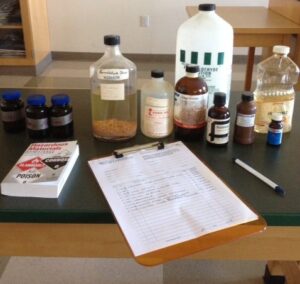Home improvement contractors often find themselves dealing with various materials and substances that require special handling and disposal. From paint and solvents to old appliances and construction debris, the waste generated during home improvement projects can pose environmental and safety hazards if not managed properly. One crucial aspect of responsible waste management for contractors is knowing when to utilize a lab pack.
In this comprehensive guide, we’ll delve into the situations in which home improvement contractors may need a lab pack, the benefits of utilizing this service, and the importance of proper waste management in the construction industry.
Understanding Lab Packs
Firstly, it’s essential to understand what a lab pack is. A lab pack is a specially designed container used for the safe collection, transportation, and disposal of small quantities of hazardous materials. These materials can include chemicals, paints, batteries, fluorescent bulbs, and other potentially harmful substances commonly found on construction sites or in residential settings.
Situations Requiring Lab Packs
Renovation and Demolition Projects: During renovation or demolition projects, contractors often encounter various hazardous materials such as lead-based paint, asbestos, and other toxic substances. Proper disposal of these materials is crucial to prevent environmental contamination and health risks.
Remodeling with Hazardous Chemicals: Certain home improvement projects involve the use of hazardous chemicals like paints, varnishes, adhesives, and solvents. Improper disposal of these chemicals can harm the environment and pose health risks to workers and residents.
Cleanup of Spills and Accidents: Accidental spills of hazardous materials can occur during home improvement projects. Contractors need to have a protocol in place for safely cleaning up and disposing of these materials to prevent further contamination and potential liabilities.
Removal of Old Appliances and Electronics: Old appliances and electronics often contain hazardous components such as mercury, lead, and cadmium. Proper disposal of these items is essential to prevent environmental pollution and comply with regulations.
Benefits of Using Lab Packs
Compliance with Regulations: Utilizing lab packs ensures that contractors comply with local, state, and federal regulations regarding the handling and disposal of hazardous materials. Failure to comply with these regulations can result in fines, penalties, and legal liabilities.
Environmental Protection: Proper disposal of hazardous materials through lab packs helps protect the environment by preventing pollution of soil, water, and air. By safely managing these materials, contractors contribute to sustainability and environmental stewardship.
Safety: Lab packs provide a safe and convenient way to collect and transport hazardous materials without risking exposure to workers or the public. They are designed to meet strict safety standards and reduce the risk of accidents or spills during transportation and disposal.
Efficiency: Using lab packs streamlines the waste management process for contractors by consolidating small quantities of hazardous materials into a single container. This saves time and resources compared to handling and disposing of materials individually.
Importance of Proper Waste Management
Proper waste management is essential for the construction industry for several reasons:
Protecting Public Health: Inadequate waste management practices can lead to exposure to harmful substances, endangering the health and safety of workers, residents, and the surrounding community.
Preventing Environmental Pollution: Improper disposal of hazardous materials can contaminate soil, water sources, and ecosystems, leading to long-term environmental damage and ecosystem disruption.
Legal Compliance: Failure to comply with waste management regulations can result in costly fines, legal penalties, and damage to a contractor’s reputation. By adhering to proper waste management practices, contractors can avoid these consequences and build a positive reputation for environmental responsibility.
Conclusion
In conclusion, home improvement contractors may need a lab pack in various situations where they encounter hazardous materials during construction, renovation, or demolition projects. Utilizing lab packs offers numerous benefits, including compliance with regulations, environmental protection, safety, and efficiency. Proper waste management is essential for protecting public health, preventing environmental pollution, and ensuring legal compliance in the construction industry. By understanding when to use lab packs and implementing responsible waste management practices, contractors can minimize risks, protect the environment, and uphold their commitment to safety and sustainability.


